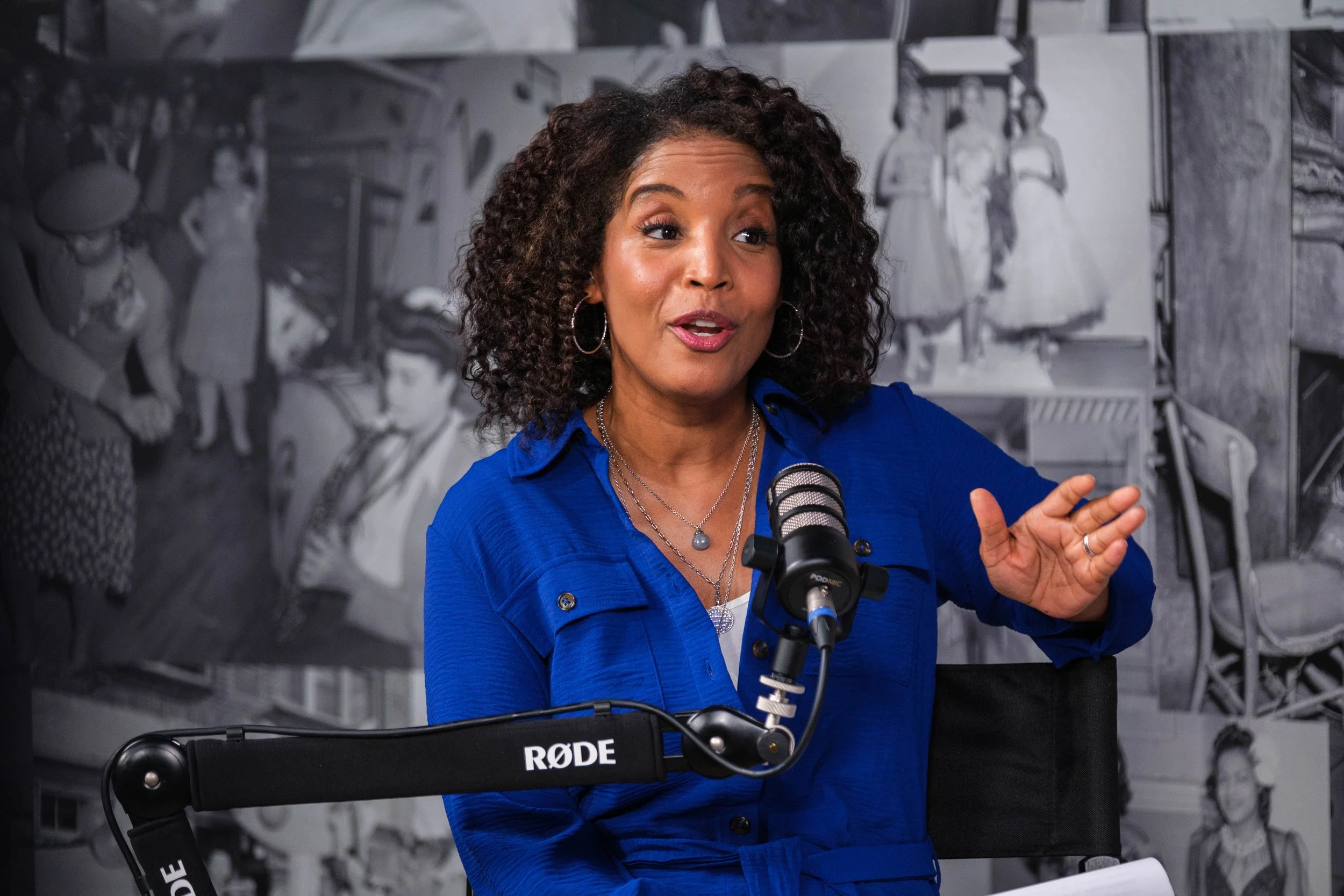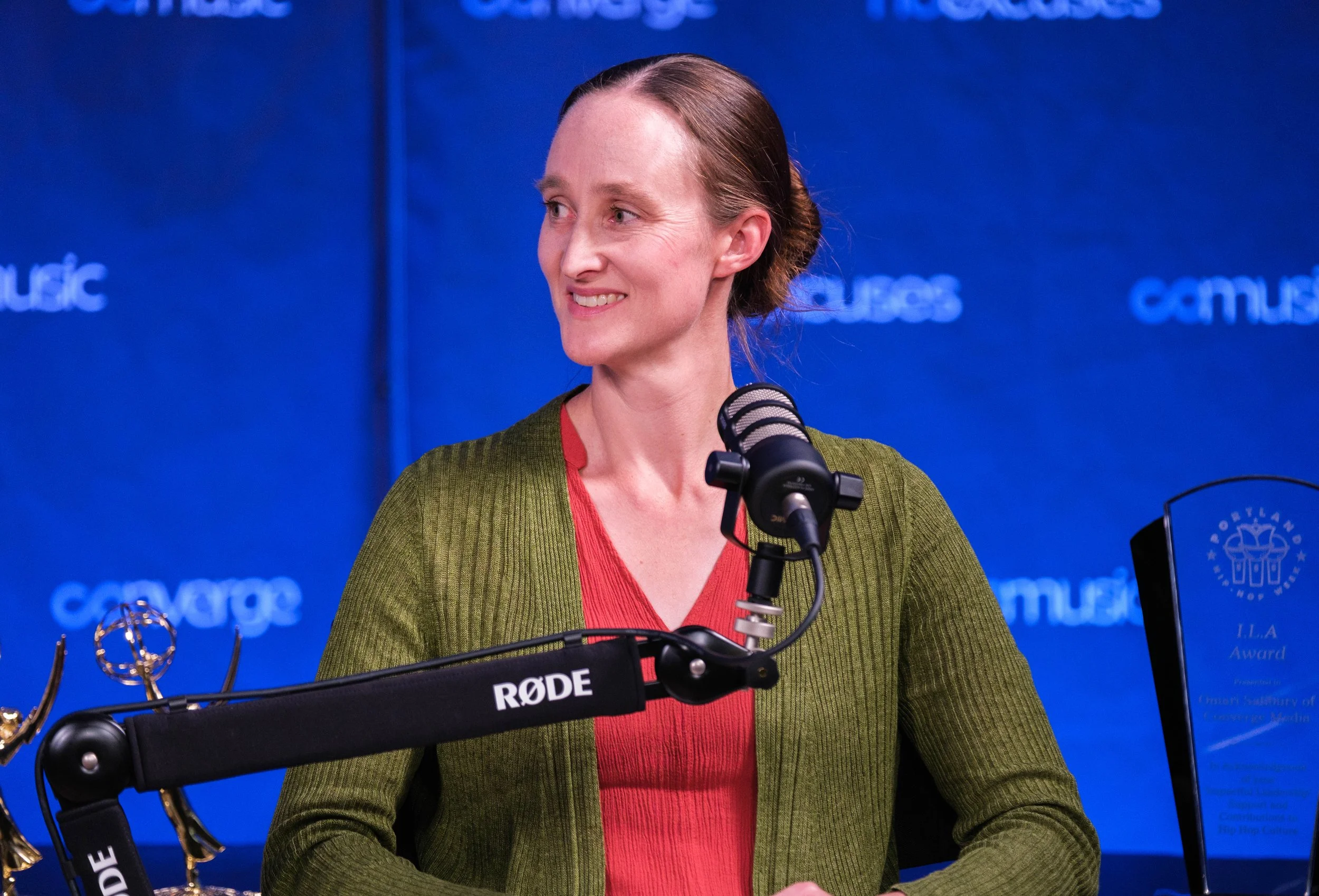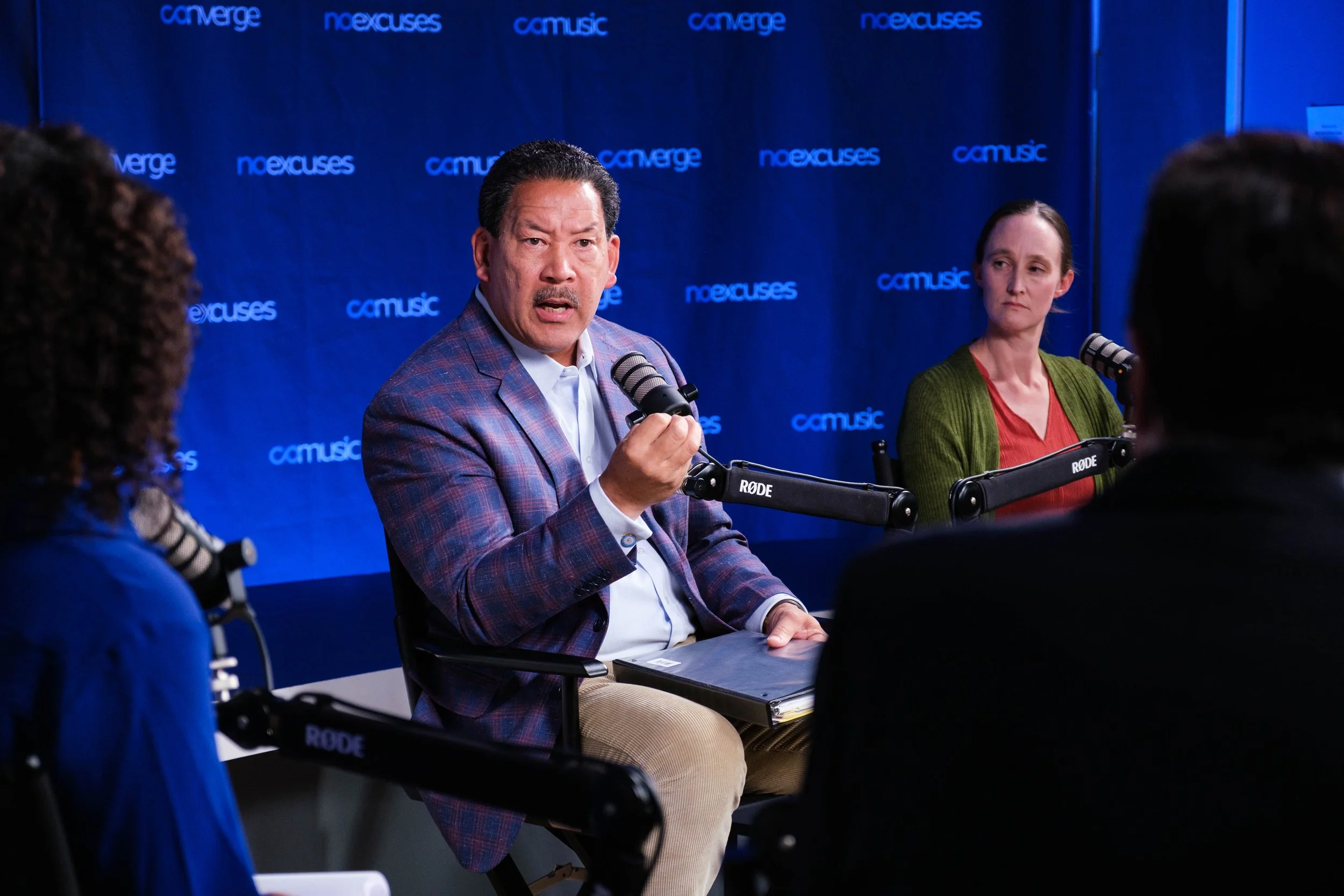Harrell and Wilson Clash in Spirited Debate at Black Media Matters Studio
By Mead Gill
In a determining moment for the future of the Emerald City, Mayor Bruce Harrell and challenger Katie Wilson squared off in a spirited debate in the Black Media Matters studio last night. Moderated by host and executive producer of Converge Media’s Community Voices, Angela Poe Russell and FOX 13 Seattle’s David Rose, the debate sparked crucial dialogue and opposing strategies on public safety, affordability and housing, public transportation and accessibility, and Seattle’s Black community.
Broadcasted live on Converge Media streaming platforms and FOX 13 Seattle, the debate aimed to reach those less civically engaged but strongly connected with Converge Media’s content in the final mile before the election on November 4.
Setting The Tone
Off the bat, Harrell pointed to the progress of his first term and Wilson’s inexperience in Seattle government. “This race will be about experience, accountability and trust,” he said. “I'm the only candidate with the experience and track record to keep Seattle moving forward, and let's keep making this progress.”
A community organizer and coalition builder of 14 years, Wilson claimed her direct engagement with the concrete struggles of Seattle’s business owners, parents, and community have equipped her to fill in the gaps of Harrell’s governance. “I know I don't have all the answers ready-made, but I'm a problem solver who knows how to listen, bring people together, work across differences and get results,” she said.
Angela Poe Russell addresses the candidates in the Black Media Matters Studio last night. Photo: Jordan Somers
Ensuring Affordable Living Standards
On reducing rent, Harrell called for financially meeting affordable housing developers “where they are” to increase inventory and safety. He pointed to the $170 million his office put toward affordable housing and, what he called, state stability and preservation opportunities in August.
Taking a more holistic approach, Wilson claimed the City of Seattle has not spent public dollars wisely, referring to 1300 affordable housing units being sold off under Mayor Harrell. Rather than continuing to push public dollars toward small unit studios, her solution is investing in family sized units and housing “at the deepest level of affordability” to address what she deemed as most needed in the community.
Harrell countered Wilson’s plan: “The problem with many of her ideas is she can't do it,” he said, a recurring sentiment he made throughout the night.
David Rose listens to the candidates at the debate last night. Photo: Jordan Somers
Reducing Homelessness
Acknowledging the rise of homelessness despite Harrell’s increasing budget investment in the issue, Wilson claimed inefficient spending toward the Unified Care Team and encampment sweeps was the root of the problem. “Outreach is great, but what the Unified Care Team is doing is moving people around without actually getting them the support that they need,” she said, proposing 4000 new units of emergency housing and shelters in the next four years equipped with adequate resources toward recovery.
Harrell claimed Wilson’s plan would cost close to $500 million to execute, and proposed more investment in permanent supportive housing. When Rose pointed to the imminent dangers of the Mayor’s current regionalized encampment plan, Harrell vowed to implement wraparound services within the sanctioned encampments.
Photo: Jordan Somers
Keeping Seattle Streets Safe
Mayor Harrell proposed a one percent increase on sales tax to fund public safety priorities in Seattle, a regressive tax he deemed worth the sacrifice. “We have to reinvest in ourselves if we're going to be the great city,” he said.
While cautiously supporting the Mayor’s proposed investments in public safety themselves, Wilson proposed a capital gains tax to increase the public safety budget while not increasing sales tax. When Russell questioned her on the city’s readiness for this proposal, Wilson reaffirmed a need for a structural solution in overcoming the budget deficit and adequately funding public safety measures.
Additionally, Wilson explained the intersectionality of many key issues. “Some of our public safety issues come from the fact there are so many people sleeping unsheltered with untreated mental illness and drug addiction,” she said, viewing investments in public safety, homelessness, and police as mutually beneficial.
Wilson condemned her previous stance on cutting the police force in half, now calling for “adequate staffing” but restructuring the system so many roles are civilianized. Harrell rebutted tensely: “Just saying ‘adequate staffing’---that is the most non-statement I've ever heard, and…that scares me as a person who lives in the city,” he said, looking to recruit more proactive and community-oriented officers.
Rose asked the candidates directly if they support returning police officers to Seattle Public School campuses to prevent violence in the classrooms, to which Wilson answered ‘no’ and Harrell answered ‘yes.’
Photo: Jordan Somers
Transportation & Accessibility
A daily transit rider, Wilson explained that expanding and refining Seattle’s public transportation system was the solution to keeping up with the city’s continual growth. “We have to make it possible for more and more of the folks living here and moving to the city to not drive,” she said.
Harrell defended his progress in making roads a shared asset. “I've been the first mayor to actually bring the ecosystem of transportation, whether it's bike, industrial usage, cars, transit,” he said, noting a downward trend in car usage in the past five years. He connected this sentiment to curbside accessibility, plugging the Vision Zero Action Plan to continue optimizing safety and access for all.
Looking Out for The Black Community
Backing his $80 million proposal for anti-gentrification and reparations, Harrell addressed the devastating effects of historic redlining and predatory renting legislation that still impacts the Black community today. “We're going to be…one of the first cities in the nation to address the egregious housing policies that people fell victim to here in Seattle,” he said. Wilson expressed interest in the proposal, requesting more details before voicing support.
With the walls of the Black Media Matters surrounding them, Russell directly asked Wilson what she has learned about the Black community since starting her campaign. “The Black community is not a monolith,” Wilson answered, praising the community’s diversity while finding commonalities in what they need. “People want a safe community for their children to grow up in. People want to be able to afford to live in a place, to buy a home, to pass that home on to their children,” she said.
Photo: Jordan Somers
Engaging Community Voices in the Final Mile
The candidates’ engaging conversation with Russell and Rose revealed a clear battle between Harrell’s experience in Office and Wilson’s fresh perspectives.
“What scares me most is that I think Trump would walk over a person with no experience,” Harrell said, countered by Wilson’s take: “I decided to run for mayor because I saw that we are in a moment that calls for new ideas and new leadership,” she said. “A moment when working people and communities across our city are struggling and not feeling like their voices are being heard in the halls of power.”
Don’t forget to vote in the upcoming Seattle general election on November 4, 2025.










